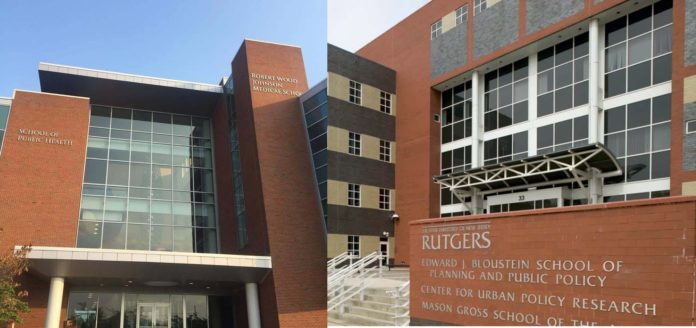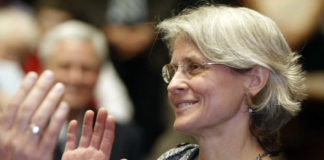
The Rutgers School of Public Health and the Mason Gross School of the Arts have formed a collaboration to support community-engaged, arts-integrated research projects that will culminate in art productions and performances.
Jason Geary, dean of Mason Gross, said the collaboration involves ongoing research projects led by faculty from the School of Public Health and Mason Gross to explore ways in which the arts can help shape public health outcomes, with a particular focus on addressing health inequities, he said.
“(The collaboration) is significant because it demonstrates the promise that interdisciplinary research involving the arts holds for solving some of the world’s most pressing challenges, including those around public health,” Geary said.
The projects include an examination of psychosocial effects from pilates workshops in three New Jersey public high schools to help address teenage anxiety and depression, a photo series focusing on the lived experiences of gay and bisexual men, who disproportionately suffer from HIV or face HIV-related stigma, and an oral history workshop and performance by individuals dealing with HIV or AIDS.
Geary said these projects arose from a speed networking event implemented by the School of Public Health’s Director of Research Katie Zapert and Mason Gross’ Associate Dean for Academic Affairs Rebecca Cypess for faculty across the two schools to meet each other and discuss their interests.
He and Perry N. Halkitis, dean of the School of Public Health, pledged funding for projects that came out of the networking event in order to encourage faculty researchers to think in creative ways about how the arts can be used to improve public health outcomes, Geary said.
Projects which demonstrated a particular interest in involving and responding to community needs were considered especially important because access to art and the public health outcomes arising from it varies between communities, Geary said.
“We know that the arts are central to health outcomes and that access to the arts — and those positive outcomes — is very uneven across our society,” he said.
Zapert said each project is anticipated to take 12 to 18 months, but since they all have different areas of focus, the length of the collaboration will vary.
“Hopefully this is only the beginning of a long-term collaborative partnership, between (Mason Gross) and (the School of Public Health), the (three) grantee teams and the individual faculty,” she said.
Geary also said he hopes the initiative will continue past the initial grant period and that the programs will hopefully provide a proof of concept, after which studies can be upscaled and researchers can apply for larger grants.
Halkitis said the joint projects highlight how work in the fields of public health and the arts can be advanced through collaboration.
“The work that Rutgers School of Public Health faculty are enacting with Mason Gross School of Arts faculty are indicative of the inter and multidisciplinary efforts that must define all of our work if we are to have maximum effectiveness in our endeavors to advance health equity and the well-being of all people and populations,” Halkitis said.








